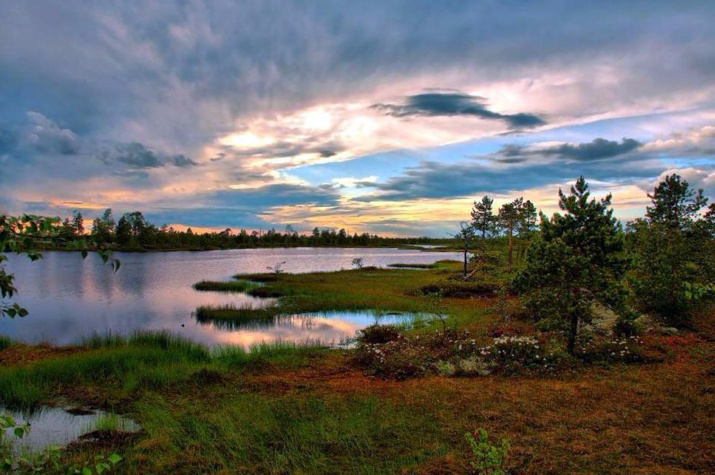Scientists at Tomsk State University (TSU) and members of the Tomsk Geographical Society offer to include swamps in the Paris climate agreement. Wetlands reduce the level of carbon dioxide in the atmosphere and thereby reduce the greenhouse effect. The decision will allow Russia to get more quotas for greenhouse gas emissions.
The Paris Agreement is a document to reduce carbon dioxide emissions (these are the so-called "greenhouse gases" that cause global warming). According to the document, starting in 2020, developing countries will be allocated $ 100 billion annually for technological and industrial needs as part of the endeavor to reduce the rate of global warming.
For each country, a greenhouse gas emission quota has now been established. In the event that a state produces less greenhouse gases than the allocated quota, it can sell the "surplus" to another state that needs to expand emission quotas. Scientists are proposing to include wetlands in the estimated quota arrangements for the Paris Agreement to take advantage of these opportunities.
“The inclusion of wetlands in the quoting mechanism could be very beneficial for our country. Due to the swamps, which are the main carbon sink – carbon being one of the main components of greenhouse gases – Russia could receive much more quotas and use them at its discretion,” comments the director of the TSU Center for Excellence "Bio-Clim-Land" and a member of the Tomsk branch of the Russian Geographical Society, Sergey Kirpotin.
Many countries have lost this resource - drained most of the swamps in order to use these territories for farmland or forest plantations. About 33 million ha of wetlands have been drained on the planet, which is the area of almost six Vasyugan swamps located in Western Siberia. Recently, the restoration of peatlands has been attracting more and more attention in different countries.
Scientists have prepared a resolution on the inclusion of wetlands in the Paris Climate Agreement, which will be discussed with experts from Russia, Britain, France, Sweden and Canada. The approved draft resolution will be presented to the Russian government with a further prospect of discussion at a high international level.
“The swamps of Western Siberia are the largest natural storage of carbon on our planet. They are a kind of ‘atmospheric coolers’ at the global level, and there is no equal to the Big Vasyugansky among them. This is the largest natural dry land ‘air conditioner’ on the planet. In fact, we provide a serious environmental service to the whole world,” adds Kirpotin.



